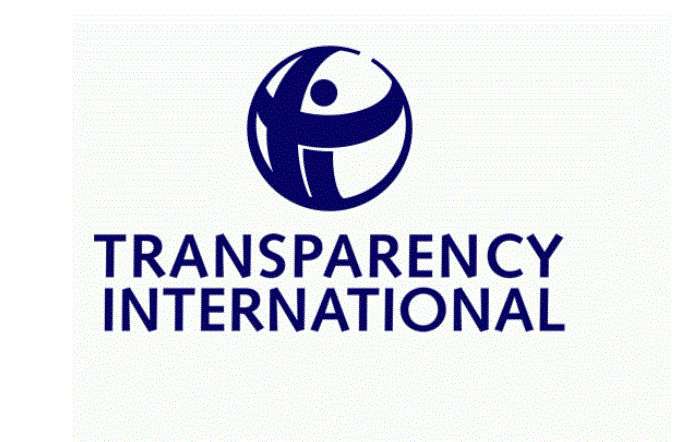Disturbing indices on corruption in Nigeria
A report recently released by the global corruption watchdog, Transparency International, indicated that Nigeria slipped down the Corruption Perception Index in 2020. The report titled ‘Corruption in Pandemic Response and Law Enforcement Drags Nigeria’s Corruption Perception Further Down’, showed that the country scored 25 out of 100 points in the 2020 CPI, a drop by […]

Transparency International
A report recently released by the global corruption watchdog, Transparency International, indicated that Nigeria slipped down the Corruption Perception Index in 2020.
The report titled ‘Corruption in Pandemic Response and Law Enforcement Drags Nigeria’s Corruption Perception Further Down’, showed that the country scored 25 out of 100 points in the 2020 CPI, a drop by one point compared to 2019, when it scored 26.
“In the country comparison for 2020, Nigeria ranked 149 out of 183 countries, three places down compared to 2019 results,’’ the report added.
For an administration that came to power on the mantra of fighting corruption as one of its main planks, this indeed should be disturbing development.
In its reaction to the report, the Buhari administration, through presidential spokesman Garba Shehu, stated that rather be condemned, the administration “deserved credit for diminishing corruption in the public service and would continue to support prevention, enforcement, public education and enlightenment activities of anti-corruption agencies’’.
That Nigeria indeed has a corruption problem is not in doubt. It is a problem that has seemingly defied attempts by governments over the years to tackle comprehensively. The Transparency International report, while not detailing any instances of corruption in the country, however, indicated that there was well-grounded perception among the Nigerian public about the pervasive incidence of corruption in all facets of life.
Transparency International is not alone in drawing this conclusion about corruption and its negative effects on Nigeria. The World Bank in its report on ‘Rising to the Challenge: Nigeria’s COVID Response’, released in December 2020, warned that the next three years could see a reversal of decades of economic growth and the country could experience its deepest recession since the 1980s.
Similarly, the Council of Foreign Relations, an independent think tank, stated that Nigeria’s gloomy picture reveals an even gloomier one if we consider the dire unemployment data for the second quarter of 2020 released by the National Bureau of Statistics. Each of the challenges that Nigeria faces across social and economic spheres could be linked to corruption and mismanagement which further exacerbated the economic health of the country.
Rather than seek to politicise the issue, we should come to terms with the reality that corruption is a serious cankerworm that has eaten deep into the fabric of our society. It is embedded in the public service with officials asking for gratification before carrying out their duties. By some accounts, corruption constitutes a disproportionately large percentage of our Gross Domestic Product (GDP), which is alarming by any stretch of the imagination.
Although the government has come out to defend its record on tackling corruption, the facts on ground show that not much impact is being made. There are no concerted efforts by government agencies responsible for tackling the scourge to work together towards reducing, if not eliminating the problem. By our observation, government agencies seem to either work at cross purposes or show indifference at corruption cases in which they are not involved. And in the few celebrated cases of corruption that have come to light, where people have been caught, not much example is made of them to serve as deterrent.
Government must take the latest report of Transparency International with all the seriousness it deserves and wake up to its avowed pledge to tackle corruption in the country. It must demonstrate the necessary will to face up to the issue by cranking up its investigations and prosecuting those involved in the unwholesome practice.
In these efforts too, Civil Society Organisations and the larger body of Nigerians must weigh in with their vigilant activism in order to defeat, once and for all, this existential danger to our collective economic and social well-being.
